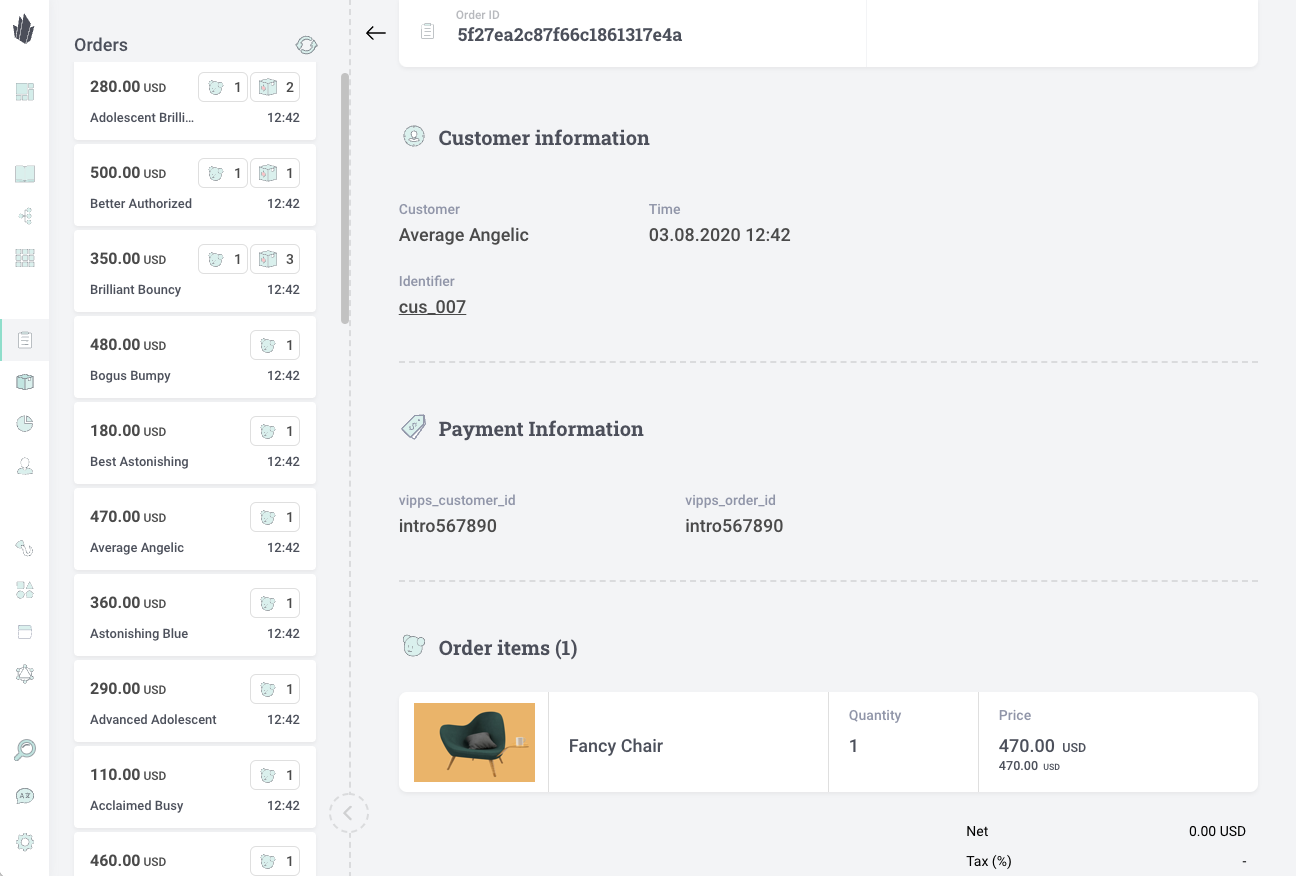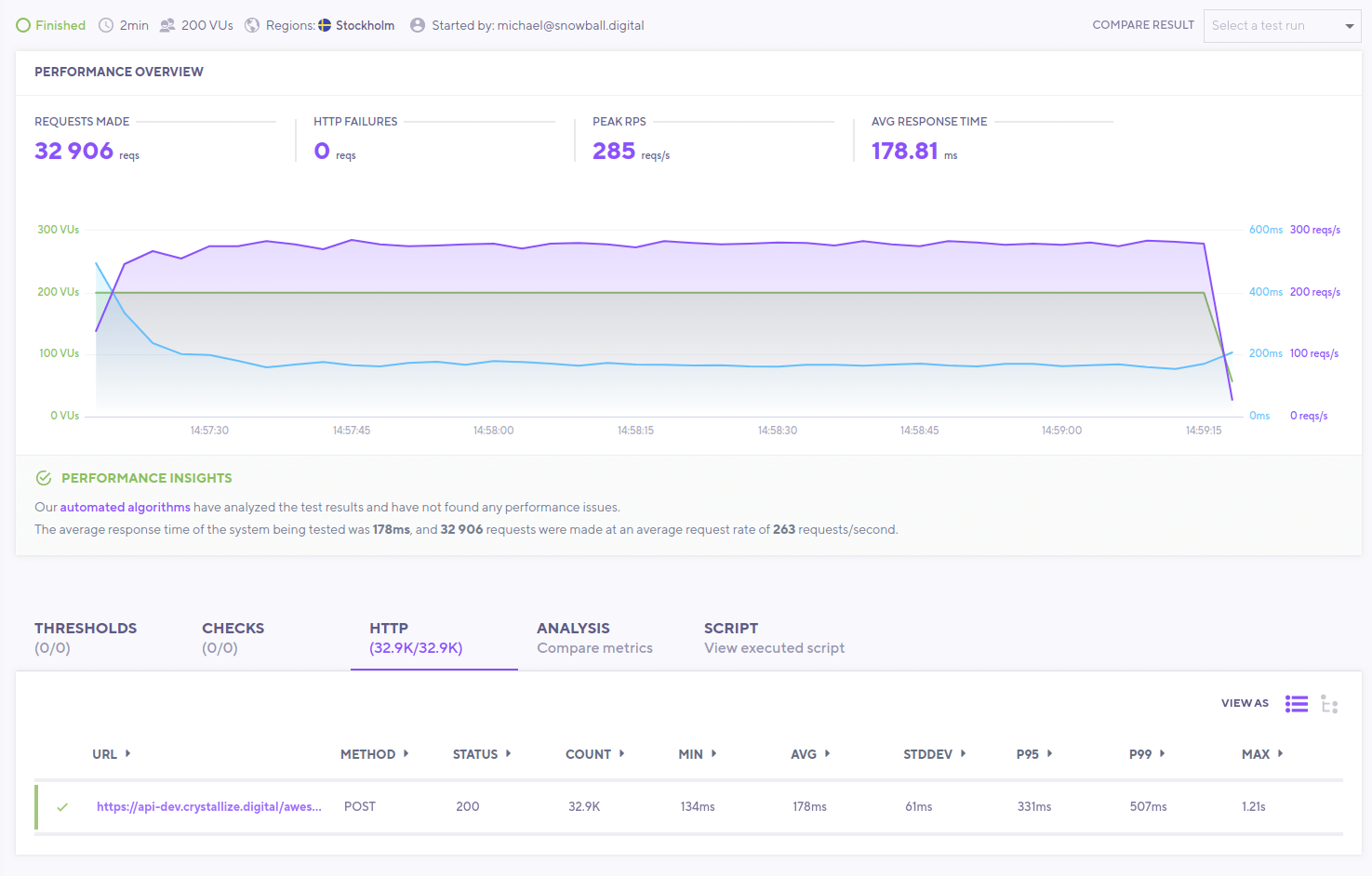Testing One Million eCommerce Orders Per Hour
Psst: we are hiring remote frontend developers and backend developers.

OK, let's talk numbers. One million eCommerce orders per hour is a nice round number. We tested the Crystallize eCommerce API to see how it handles this ridiculous amount of concurrent orders.
TLDR; we confirmed that our architecture scales and easily handles peak traffic at a rate of 285 orders per second, resulting in 1 026 000 orders per hour. That is Black Friday ready 😎

Black Friday Ready eCommerce Order Intake
eCommerce trends show that more brands are doing limited runs and using scarcity to make customers buy their products for a limited period. Typically this is hyped brands like Off-White or the makeup collection of Jeffree Star.
With sales like Black Friday, we have seen many webshops being brought down and companies creating online queues as they cannot handle the load. But Black Friday should not mean waiting in line. We shop online not to wait in line, but because it is more efficient and offers a better customer experience.
[newsletter]Sign up for Crystallize newsletter!
Shift BUSINESS perspective to headless architecture with exclusive case studies delivered to your inbox.
As a business, you want to ensure that your webshop can handle the load. With that in mind, we decided to check/verify that a Crystallize tenant can tackle peak traffic of 1 million orders per hour (actually 1 026 000). This translates to 285 orders processed per second. Per second 🤯
Shipping 1 million packages is, of course, a different topic, but you can rest assured that your Crystallize eCommerce service can handle the throughput.
Of course, you can sell virtual products like access to a streaming service, in-game purchases, or buying access to a newspaper. In these scenarios, you use the fulfillment pipelines in Crystallize to automatically fulfill the order by using event-driven eCommerce with webhooks.
We used the k6.io load testing service to generate random orders and scaled them to the desired throughput. You can see the results below. On average, each order is placed in 179 milliseconds with a peak concurrent throughput of 285 orders per second.

With all the screens and points of sales available today, having a reliable service that backs up your ecommerce business logic across them all has never been more important.
This means brands need to design personal customer experiences with their favorite frontend and not worry about performance, scaling, and security.
Crystallize is a rich and engaging product storytelling engine built with that idea in mind. Give us a try or schedule a 1-on-1 demo so we can show you how Crystallize supports your business growth.
